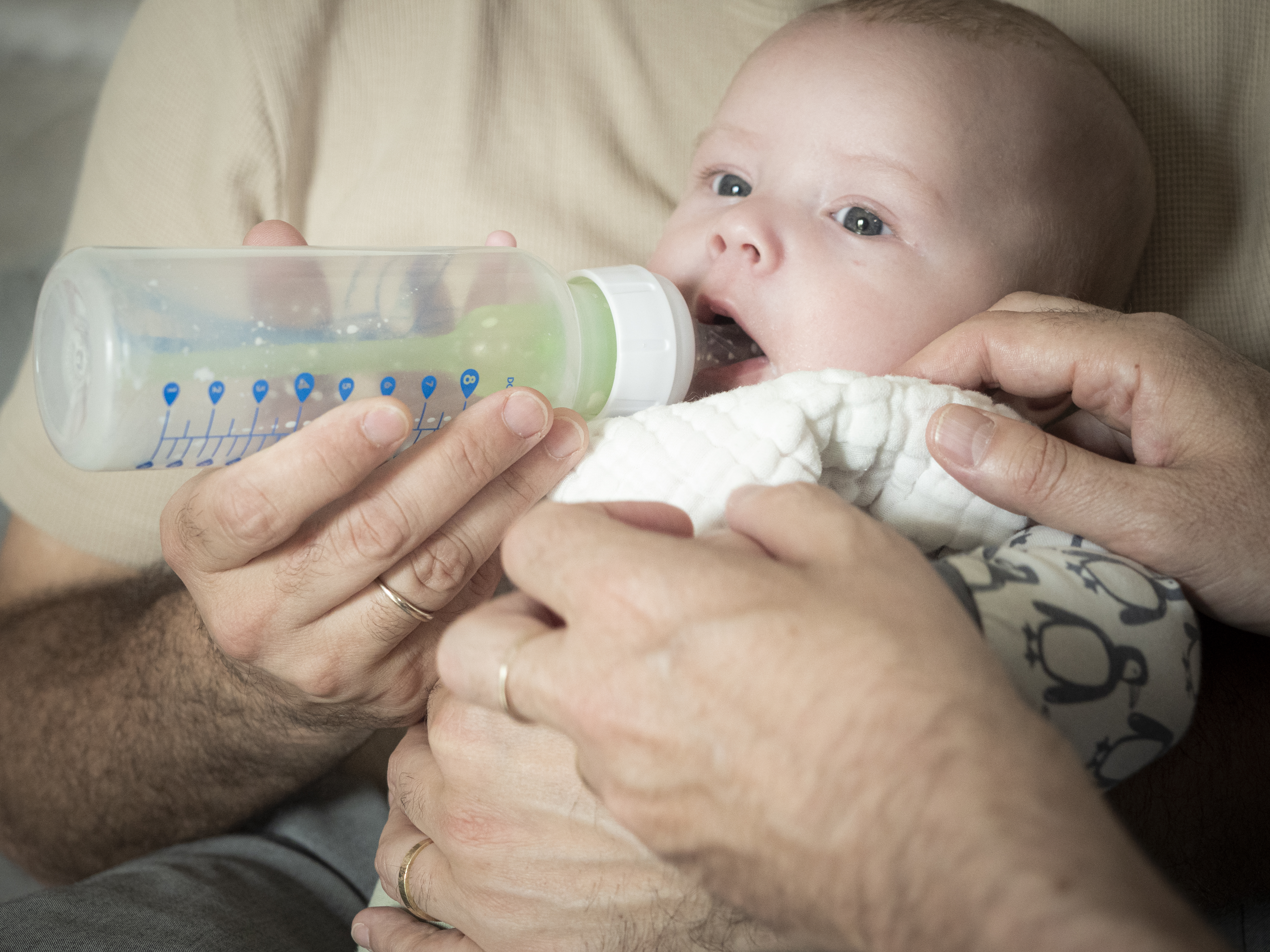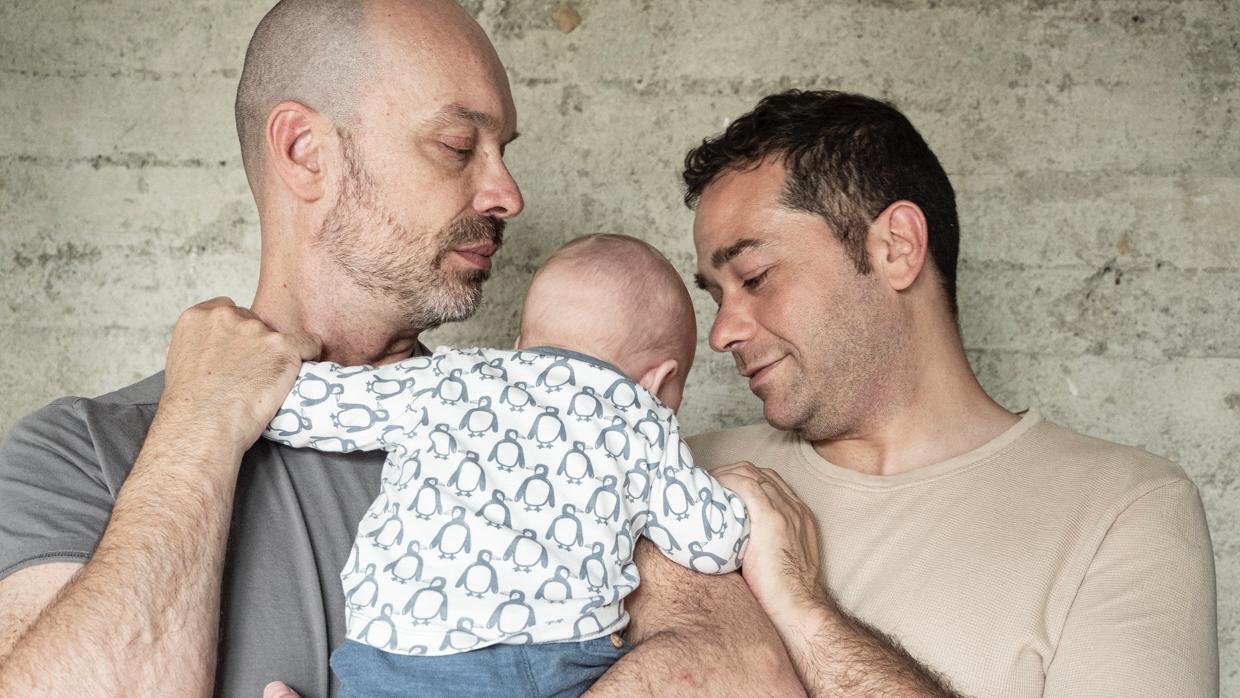Italy debates new anti-surrogacy law
Italian couple Davide Fassi and Davide Chiappa talked about wanting to have kids on their first date at a restaurant in Milan in 2009.
In late January this year, the couple who had a civil union in 2019, flew to Portland, Oregon, to attend the birth of their son.
Only one of them — Chiappa — was allowed into the delivery room due to COVID-19 restrictions where Morrisha, their American surrogate, gave birth to a baby boy, Martino.
“It was so amazing to see Martino being born,” said Chiappa, who sent live videos and photos of the birth to Fassi, who was in the waiting room.
The couple chose a surrogate in the US because it is one of the only countries worldwide that permits same-sex couples to have a child via surrogacy.
Now, the Italian government wants to put a stop to the practice altogether, proposing a new law that would prosecute any Italian citizen having a child through surrogacy, even when it’s done legally abroad. If passed, the law will carry a possible prison sentence of up to two years and a potential fine of more than $1 million.

The proposal was met with protests outside of Italy’s Parliament last week.
Grazia Di Maggio, a lawmaker with Prime Minister Giorgia Meloni’s Brothers of Italy party, said the legislation would put an end to “womb-lending” in Italy.
Meloni, whose government is heavily promoting the bill, has previously described surrogacy as “an abomination.”
Far-right Meloni has put the concept of the “traditional family” at the center of her government’s agenda in spite of being a single mother, raised in a one-parent household.
History professor David Broder, who teaches at Syracuse University in Florence, said Meloni regularly refers to her own absentee father as the reason she believes so strongly that a child should be raised by two parents of the opposite sex.
It’s a perspective largely supported by Meloni’s conservative base, said Broder, who just published a book titled, “Mussolini’s Grandchildren,” about the reinvention of the far-right movement in Italy since World War II.
Meloni’s government renamed a number of departments after coming to power in September: “The Ministry of Economic Development became the Ministry of Businesses and Made in Italy, so it sounded more nationalist, with a pro-business focus. And the Families and Equality Department added in the word ‘birth rates.’”
Meloni has been less vocal on divisive culture war issues since taking office but her party colleagues have not held back. In a live television interview in March, fellow lawmaker Federico Mollicone, who’s president of the Italian Lower House’s culture committee, described surrogacy as a crime worse than pedophilia.

Broder said the comments provoked outrage among government opponents, which is exactly the reaction the far-right party wanted. Broder said for Meloni, it’s a sort of a game.
“She likes to play the stateswoman, standing for Italy on the international stage, whereas her ministers and leading members of her party, they’re more inclined to give some red meat to the base.”
Italy is one of the only countries in Western Europe not to legalize same-sex marriage or gay adoption. But Broder said social attitudes toward homosexuality and gay adoption are more liberal than Italian laws would suggest.
A poll on surrogacy conducted in March by Quorum/YouTrend showed 40% of Italians are in favor of it being legalized for all couples, while 27% said they are against the practice entirely. Younger Italians were more in favor of it than older generations.
Targeting gay fathers
Davide Fassi, an associate professor at the design department of the Politecnico di Milano, said he knew things would change under the premiership of Meloni but he never expected the changes to happen so fast.
He said the social environment that Meloni’s far-right government is creating is unsettling for same-sex families.
“I think about my son Martino in five, six, seven years time, and I wonder if this is the environment we really want him to grow up in,” Fassi said.
The couple hasn’t ruled out moving abroad if Meloni’s far-right party remains in power for several years. Some of their friends are also expecting a baby in the fall with the help of a surrogate abroad.
“They’re super scared about it to be honest, they’re thinking about relocating outside Italy altogether,” Fassi said.
Alexander Schuster, an Italian lawyer who specializes in LGBTQ issues, said the bill appears to be targeted at prospective gay fathers, in particular.
Schuster, who’s based in Trento in the north of Italy, said heterosexual couples could potentially avoid detection by the Italian authorities if they have a baby via a surrogate abroad. But it will be far more challenging for a male couple arriving back to Italy with a newborn in tow to stay under the radar.
“The fear is that this law, which is apparently neutral, will eventually be used just to criminalize gay fathers,” Schuster said.
But Schuster said Milan couple Fassi and Chiappa are unlikely to be impacted by the proposed law as it can’t be used to penalize parents retroactively.
Schuster said he expects the bill to pass — because the Italian government holds a majority in both the Chamber of Deputies and in the Senate. But Schuster said the legislation is flawed, with no definition of when surrogacy can be deemed a crime, and as a result, it will certainly be challenged in the courts.
Still, Meloni’s government has also introduced another rule that is impacting same-sex parents like Fassi and Chiappa. In March, the government told Milan’s City Council to stop registering same-sex parents’ children in line with a court ruling last December.
Martino’s birth certificate, which was issued by Oregon state, lists Fassi and Chiappa as the newborn’s legal parents. Fassi said this is not being recognized by Italian authorities and as a result Martino is currently considered “an immigrant”: “He’s an American immigrant in Italy.”
Not holding Italian citizenship means Martino is entitled to limited public health care in Italy. Fassi said it leaves them in a state of limbo.
One option open to the nonbiological parent is stepchild adoption but the process could take years.
With the recent change of rules on birth certificates for children of same-sex parents and the proposed surrogacy law, Fassi said he dreads to imagine what other laws the far-right government might introduce targeting the LGBTQ community.
Then again, “We are accustomed to dealing with these kinds of challenges and whenever I feel frustrated, I look at Martino and know that it’s all worthwhile,” he said.
